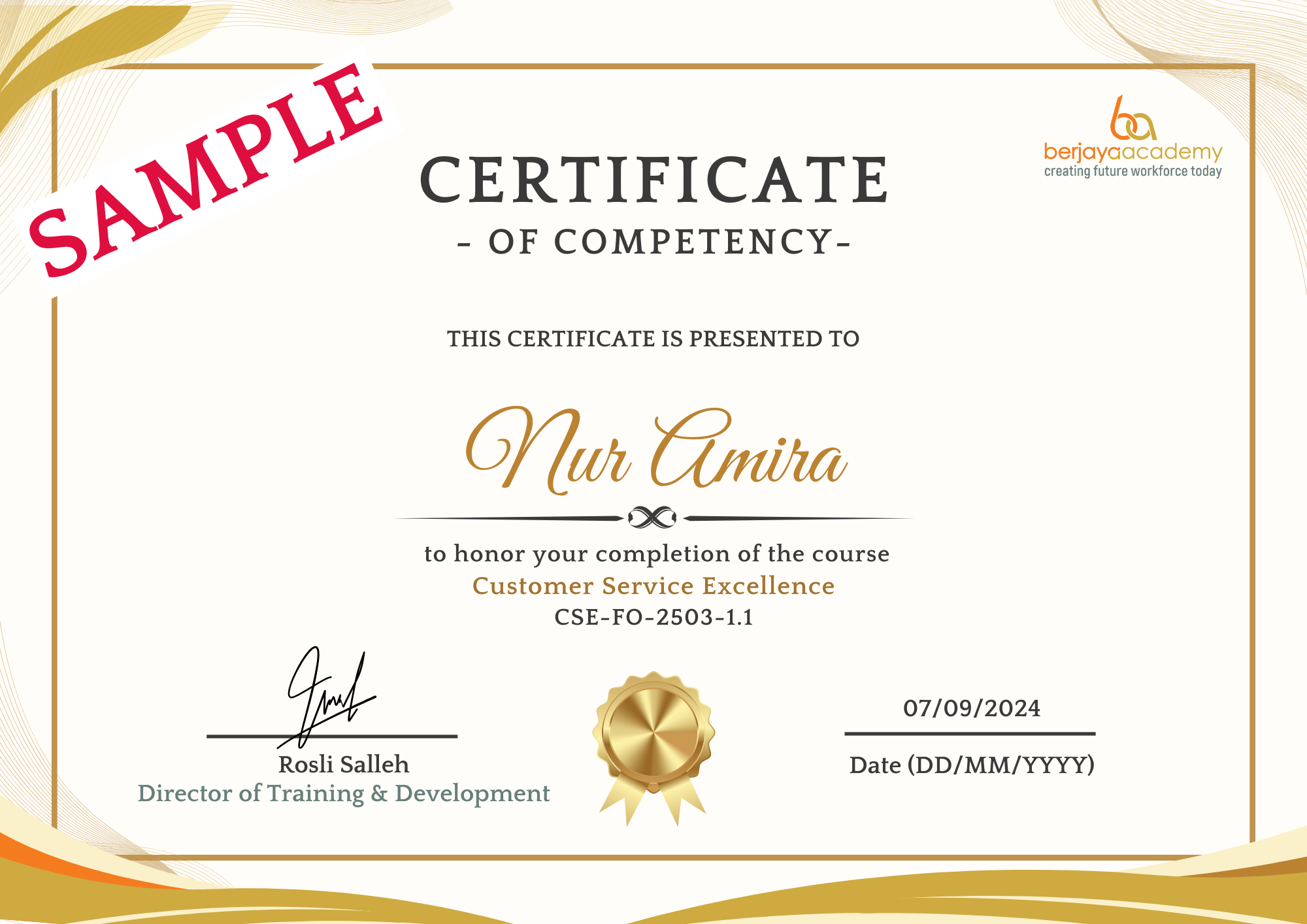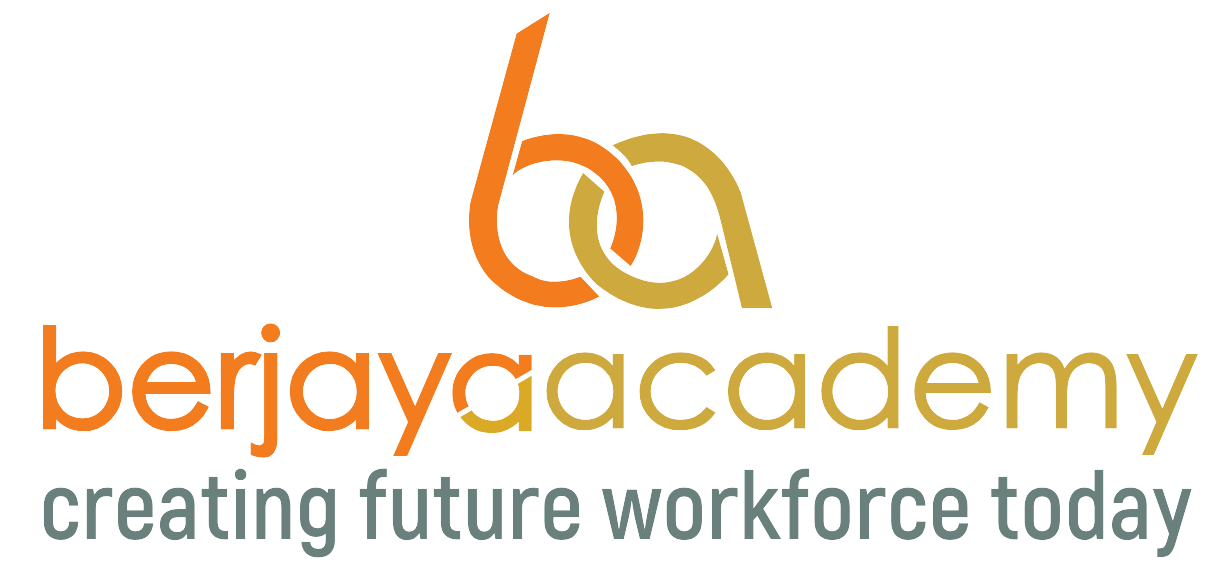
Course Details
Course Title: Customer Engagement and Conflict Resolution
Course Code: CECR-FB-2503-1.1
Course Accreditation
Accreditation Type: Certificate of Competency
Course Duration
Total Course Hours: 8 hours (1 day)
Course Fee
Total Course Fee: S$180/pax
Funding Available (If Applicable):
- Training Industry Professionals in Tourism (TIP-iT)
- NTUC Company Training Committee (CTC) Grant
Summary
Topics:
- Techniques for delivering exceptional customer service.
- Techniques for delivering exceptional customer service.
- Handling difficult customers and resolving complaints effectively.
- Recognizing and de-escalating potentially volatile situations.
Security Aspect:
- Ensures a safe and respectful environment for staff and guests.


Learning Objectives and Learning Units for Customer Engagement and Conflict Resolution
Learning Objectives:
By the end of this course, learners will be able to:
- Apply techniques for delivering exceptional customer service that meet or exceed guest expectations.
- Handle difficult customers and resolve complaints effectively, maintaining professionalism and ensuring customer satisfaction.
- Recognize potentially volatile situations and apply de-escalation strategies to maintain a safe and respectful environment for both staff and guests.
Learning Units:
Unit 1: Techniques for Delivering Exceptional Customer Service
- Understanding the importance of customer service in hospitality
- Key principles of exceptional customer service (e.g., attentiveness, empathy, professionalism)
- Active listening skills for effective communication
- Tailoring services to meet individual customer needs and preferences
- Positive language and body language techniques
- Managing customer expectations and delivering promises
- Building rapport and long-term customer relationships
Unit 2: Handling Difficult Customers and Resolving Complaints Effectively
- Identifying common types of difficult customers (e.g., impatient, demanding, upset)
- Techniques for staying calm and composed when dealing with difficult situations
- Strategies for addressing customer complaints professionally and promptly
- The role of empathy in conflict resolution
- Finding win-win solutions for customers and the organization
- Escalation protocols: when and how to involve a supervisor or manager
- Turning negative experiences into positive outcomes (e.g., offering compensations, resolving issues)
Unit 3: Recognizing and De-escalating Potentially Volatile Situations
- Recognizing early signs of escalating tension or conflict
- Techniques for staying calm and avoiding confrontation
- Verbal and non-verbal de-escalation strategies
- Managing angry or aggressive behavior safely and respectfully
- Diffusing anger and redirecting negative energy
- Setting boundaries and maintaining a professional demeanor
- The role of security personnel in supporting customer engagement and conflict resolution
- Reporting and documenting incidents of conflict or potential violence
